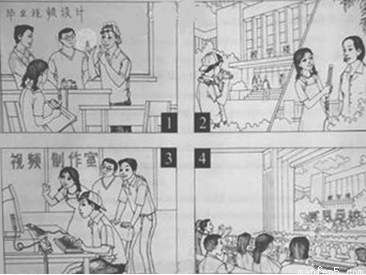题目内容
第二节 (20 分)
假设你是红星中学高三学生李华,请根据以下四幅图的先后顺序,写一篇英文周记,记录毕业前夕你们制作以“感恩母校”为主题的毕业纪念视频的全过程。注意:词数不少于60。提示词:视频video

练习册系列答案
 学期复习一本通学习总动员期末加暑假延边人民出版社系列答案
学期复习一本通学习总动员期末加暑假延边人民出版社系列答案 芒果教辅暑假天地重庆出版社系列答案
芒果教辅暑假天地重庆出版社系列答案
相关题目
题目内容
第二节 (20 分)
假设你是红星中学高三学生李华,请根据以下四幅图的先后顺序,写一篇英文周记,记录毕业前夕你们制作以“感恩母校”为主题的毕业纪念视频的全过程。注意:词数不少于60。提示词:视频video

 学期复习一本通学习总动员期末加暑假延边人民出版社系列答案
学期复习一本通学习总动员期末加暑假延边人民出版社系列答案 芒果教辅暑假天地重庆出版社系列答案
芒果教辅暑假天地重庆出版社系列答案